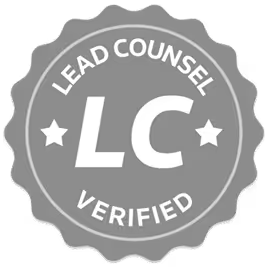Misdemeanor vs. Felony Classifications in Georgia
Georgia law divides criminal offenses into misdemeanors and felonies, with dramatically different consequences. Misdemeanors carry up to 12 months in jail and fines up to $1,000, while felonies can result in years in state prison and substantial fines. Many defendants don't realize that what seems like a minor charge can escalate to felony status based on prior convictions or specific circumstances.

The Real Cost of Criminal Convictions
Employment Consequences
Criminal convictions appear on background checks and can disqualify you from many jobs. Healthcare, education, finance, and government positions often have automatic disqualification policies for certain convictions. Even minor charges can eliminate career opportunities years later.
Professional License Impact
Licensed professionals face additional consequences beyond criminal penalties. Medical professionals, teachers, attorneys, real estate agents, and many other licensed workers must report criminal convictions to licensing boards, often resulting in license suspension or revocation.
Housing and Credit Challenges
Landlords routinely reject rental applications from anyone with a criminal record. Banks and credit companies also consider criminal history when making lending decisions, affecting your ability to secure mortgages, car loans, or even credit cards.
Immigration Consequences for Non-Citizens
Many non-citizens don't realize that seemingly minor criminal convictions can trigger deportation proceedings. Drug charges, theft offenses, and domestic violence convictions are particularly dangerous for immigrants, even those with green cards or pending citizenship applications.
First Offender Treatment and Record Restriction
Georgia's First Offender Act allows eligible defendants to avoid conviction through successful completion of probation. However, many attorneys fail to properly advise clients about First Offender eligibility, resulting in permanent convictions that could have been avoided.
Probation Violations and Consequences
Probation isn't just a slap on the wrist — it's a privilege that comes with strict conditions. Violating probation can result in serving the original jail sentence plus additional penalties. Common violations include failing drug tests, missing appointments, or getting arrested for new charges.
The Importance of Fighting Every Charge: Why Guilty Pleas Aren't Always Smart
Many defendants plead guilty to "get it over with" without understanding long-term consequences. Even deferred adjudication or pretrial diversion programs often require admissions that can be used against you later. Sometimes fighting charges results in better outcomes than quick guilty pleas.
Prosecutors consider many factors when negotiating plea deals: strength of evidence, officer availability, case backlog, and your criminal history. Experienced defense attorneys understand these factors and use them to secure better outcomes for clients.
Constitutional Rights in Criminal Cases
Police must follow specific procedures when conducting searches and seizures. Violations of Fourth Amendment rights can result in evidence suppression, often leading to case dismissals. Many defendants don't realize their rights were violated because police misconduct isn't always obvious.
Everything you say to police can be used against you, even statements you think are helpful. The right to remain silent applies from the moment of detention, not just after formal arrest. Invoking this right early can prevent damaging admissions.
Building an Effective Defense Strategy
Early Intervention Benefits
The earlier you hire an attorney, the better your chances of a favorable outcome. Early intervention allows for witness interviews while memories are still fresh, facilitates evidence preservation, and sometimes prevents charges from being filed altogether.
Investigation and Evidence Review
Effective criminal defense requires thorough investigation beyond what police conducted. This includes interviewing witnesses, reviewing surveillance footage, examining physical evidence, and consulting experts when necessary.
Alternative Sentencing Options
Georgia courts offer various alternatives to jail time, including community service, house arrest, drug treatment programs, and counseling. Experienced attorneys know which alternatives are available and how to present compelling arguments for their use.
Don’t Let the System Roll You Over. Fight Back with Us.
Don't trust your freedom to just any attorney. Choose the team with insider knowledge of how the system works. Call today!
























.avif)
